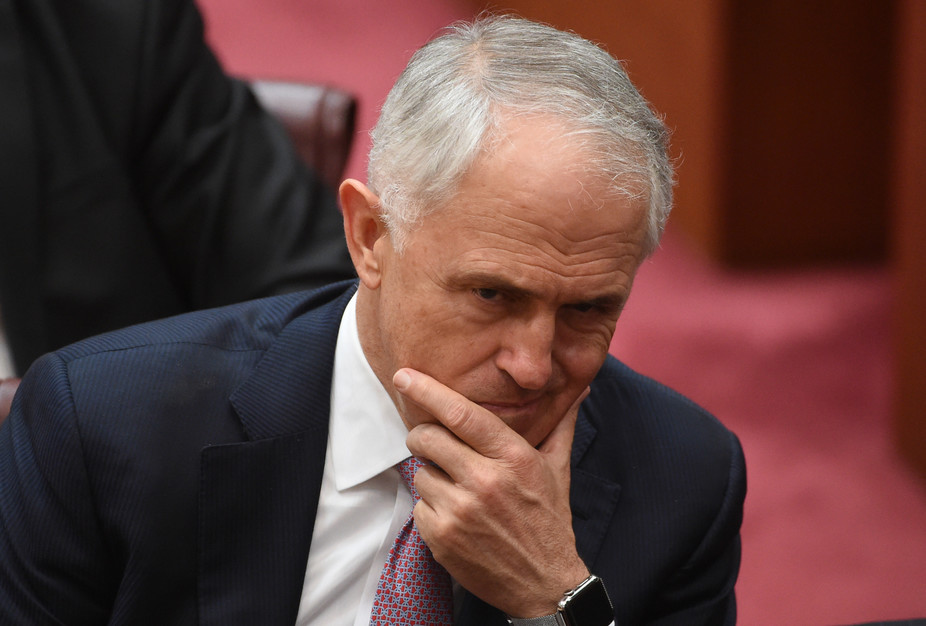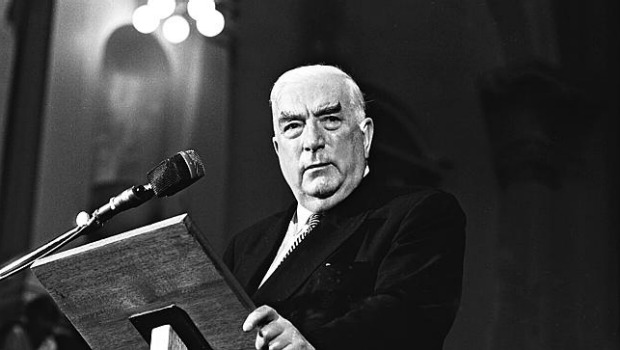
OPINION: Time for Turnbull to walk like Menzies
CRISPIN HULL
ONE morning this week I did an agile, exciting and even innovative traverse of the R. G. Menzies Walk on the northern side of Canberra’s Lake Burley Griffin.
What a progressive Menzies was.
Indeed, without him I would never have got to Canberra and the ANU, because a few years before my Year 12 he had introduced the Commonwealth Scholarship Scheme which paid the fees that would have been well beyond my parents’ means.
A conservative would not have done that in the 1960s, nor permit the Federal Government any role in tertiary education.
Equally, when in the early 1960s the conservative Treasury ruled out one million pounds for the construction of Lake Burley Griffin while Menzies was in Britain, only a progressive would have done what Menzies did on his return. He called together his Cabinet ministers, who had acquiesced in Treasury’s action, and asked them rhetorically: “Presumably it is the unanimous view of ministers that the one million pounds is now ruled in.”
Menzies, who founded the Liberal Party (not the Conservative Party, as we were reminded by Prime Minister Malcolm Turnbull this week), certainly did not hold the view that government spending was prima facie bad and spending on aspirational things was self-evidently bad.
Turnbull and others think the growing rift in the Liberal Party is between small l liberals and conservatives. Not quite. It is more a rift between small l liberals and some conservatives on one hand and other conservatives and reactionaries on the other.
Tony Abbott is a reactionary, as exemplified by his decision to bring back knights and dames. He also repealed the carbon tax. He wanted to unwind many other things (for example, the Charities and Non-for-profits Commission and racial-discrimination law) and to take the country back to where it was in some mythic heyday of the past. That is reactionary. Most conservatives would prefer to see how any recent changes worked out, rather than send in the wrecking ball straight away.
Menzies allowed the Snowy scheme (begun under Labor) to thrive. He built on Labor’s Australian car-manufacturing initiative. And he left Labor’s social security network (begun after a successful referendum in 1946) intact.
Abbott’s use of the term “centre-right” to describe the Liberal Party is really sugar-coating what he really wants: the Liberal Party to be a conservative-reactionary party.
One difference between small-l liberals and quite a few conservatives, on one hand, and the more conservative conservatives and reactionaries, on the other, is the ability to change one’s mind when circumstances change – either with more evidence coming in (climate change) or a substantial change in public position (marriage equality). The die-hard conservatives and reactionaries hold to their views while the world changes around them.
Menzies, a small-liberal, for example, changed his mind on Canberra. Initially he disliked Canberra and the notion of a great Australian capital city. Once he changed he became, in his words, “an apostle”.
When, after only just scrapping a majority in 1961, he changed quite a few policies to the horror of many in his Cabinet who branded them “Labor policies”, Menzies retorted: “Half the people voted for the Labor Party”.
After winning handsomely in 1949 Menzies had command of his party and could overrule the objections of the right-wing of his party. And because he could do that he could hold the centre ground which gave him electoral popularity that in turn gave him his leadership authority. The direction of that circle is politically joyous.
Turnbull, however, is riding that circle in the opposite direction, and the ride has been a vicious one.
The two cases illustrate how vitally important it is for the Liberal Party for the leader to capture the centre ground and give a significant role to government. Without that, it is a do-nothing, go-nowhere party only interested in doing the bidding of its corporate supporters.
John Howard was lucky to be able to get off to a good start on capturing the middle ground with gun control in 1996. He stared down the right wing of his party and they largely stayed stared down.
Labor, on the other hand, is generally more idealist and interventionist and more tolerant of leaders falling behind in the polls, aside from the Rudd aberration.
In the Liberal Party, if leader is low in the polls or loses an election, he is gone, whether in government or opposition: Gorton. Snedden, Peacock, Howard, Hewson, Downer, Nelson, Turnbull, Abbott.

Labor allowed Whitlam to stay leader after disastrous 1975 election and was allowed to resign after the 1977 election. Labor’s Chifley, Calwell, Hayden, Beazley and Shorten all stayed on as leader after losing elections and did not face party-room showdowns when they finally went.
Labor wants to get things done, the post-war social security reforms, the Snowy Scheme and local car manufacturing through to public health insurance and financial reform in the 1970s, 1980s and 1990s and disability insurance and responding to climate change from 2007.
Liberal Party politics is more directed at just staying in power.
In a way, leadership is more important in the Liberal Party and the test of it is: will we win the next election. Turnbull highlighted that with his “behind-in-30-polls-in-a-row” test showing Abbott had failed. Turnbull is nearly half way there with 14 in a row. Clearly he has to stare down the reactionaries and and with a bit of agility and excitement change more still.
It is no good him just saying that the sensible centre is the place to be. He has to actually go there, even if that means risking a party-room revolt.
His big chances will come in a few months’ time with the return of marriage equality to the party room and the dramatic change in climate and electricity politics with South Australia getting the world’s biggest battery.
If it means adopting Labor positions, so be it. As the progressive Menzies said: “Half the people voted Labor.”
It may be too late, but doing nothing will result in more Newspoll losses – the 30th of which would come in mid-February next year. The Liberal Party would either have to do something about it or limp Billy McMahon-like to inevitable electoral defeat.
www.crispinhull.com.au
Thoughts? Let us know in the comments below.
* Readers are encouraged to use their full details below to ensure comment legitimacy. Comments are the opinions of readers and do not represent the views of Newsport or its staff. Comments containing unlawful, obscene, defamatory or abusive material will not be published.
